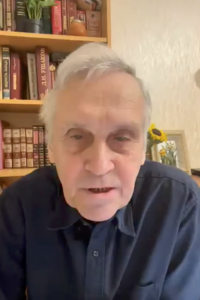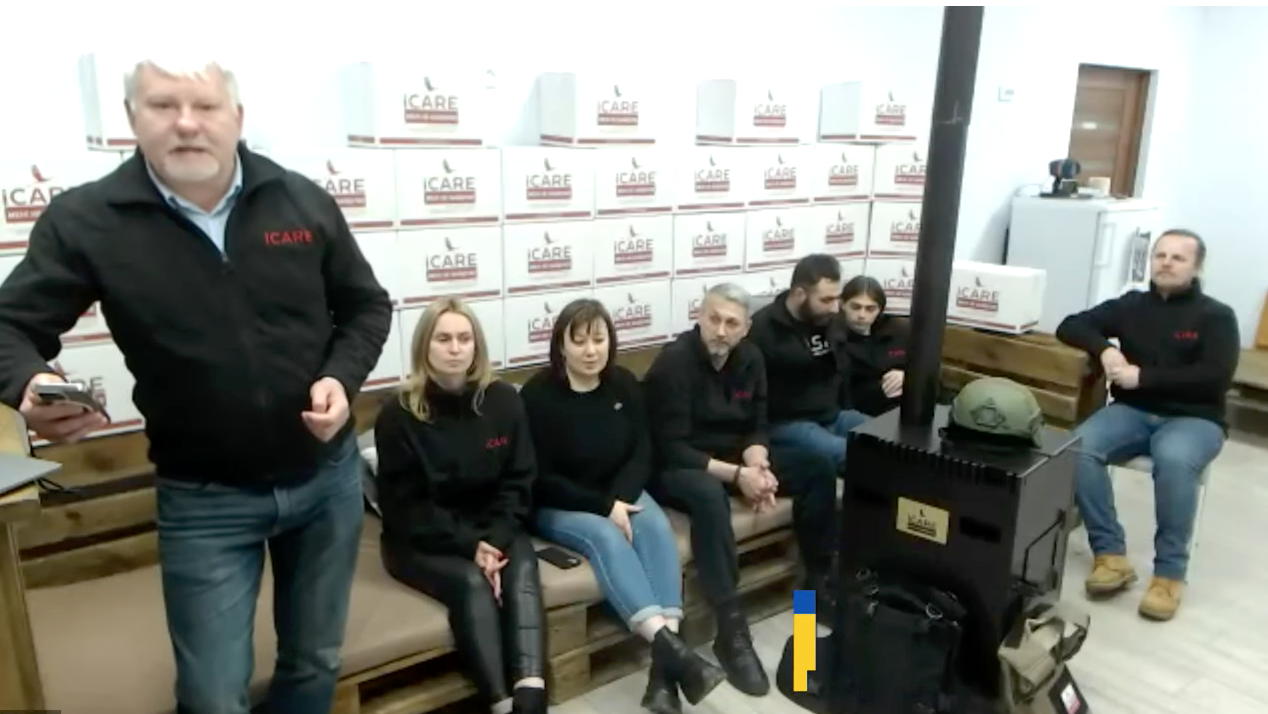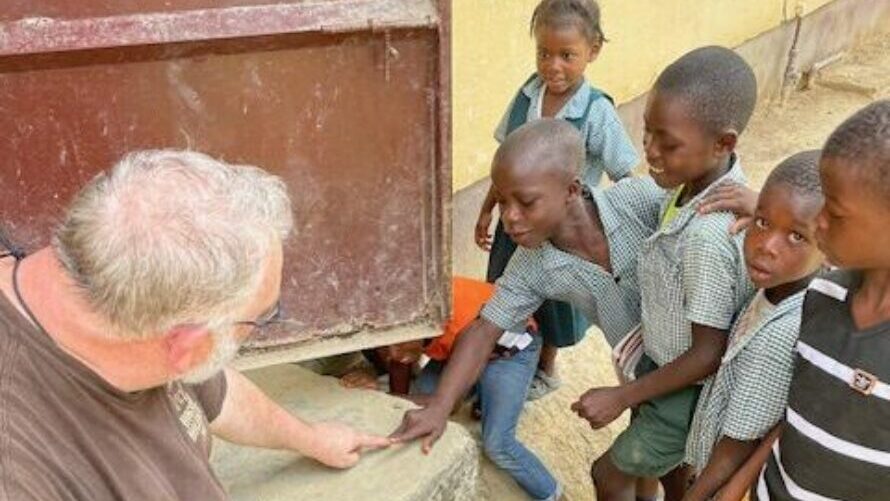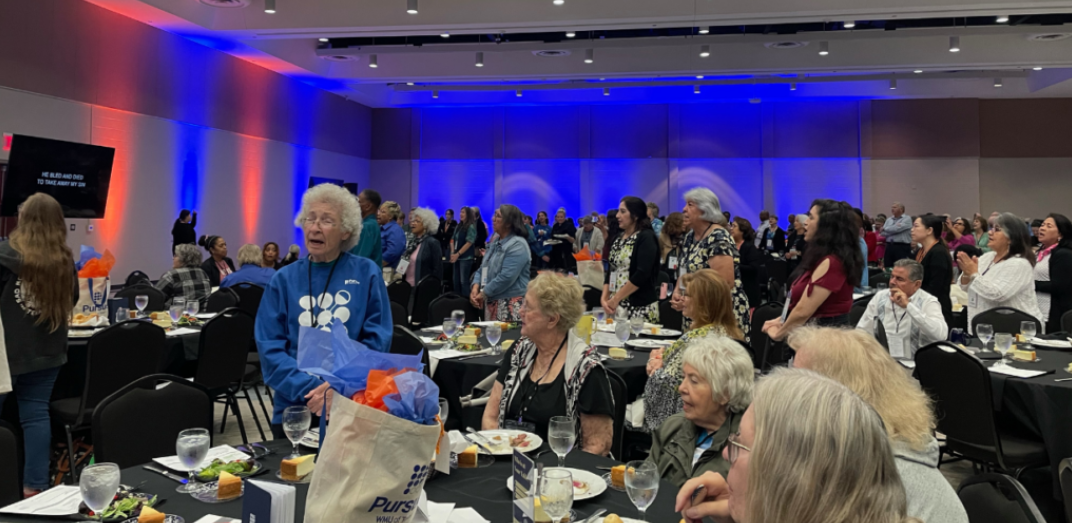A former Russian Baptist union leader, speaking from Moscow, voiced an apology for his countrymen who are “participants in this crime against Ukraine.”

“Ukrainians, we’re with you,” pastor Yuri Sipko, president of the Union of Evangelical Christians-Baptists in Russia from 2002 to 2010, said through a translator in an online prayer forum at the one-year mark of Russia’s invasion of Ukraine on Feb. 24, 2022.
“We pray for you. And we believe in your victory,” said Sipko, one of several speakers during the conference organized by Mission Eurasia, an evangelical ministry in 13 former Soviet republics and in Israel. The ministry’s Ukrainian offices near Kiev were destroyed in a tank battle during the early weeks of the war.
“365 days and 365 nights, there are bombs exploding,” Sipko lamented. “Buildings collapsing. Electricity going out. No water. No heat. This is what millions of Ukrainians are going through today.
“We continue to pray constantly for the Lord to stop this bloodbath. We pray for God to protect Ukraine and the Ukrainian people,” said Sipko, who also was a Baptist World Alliance vice president from 2005 to 2010. Before his election as the Russian union’s president, he had been its vice president for eight years.
‘Courageous Christianity’
“You have shown, my brothers, how much courage, how much strength you have, how much belief in freedom, and the ability you have to resist this transgression — this is an incredible example of courageous Christianity,” Sipko said during the Feb. 23 gathering, posted online by Mission Eurasia on March 9.
In prayer, Sipko said, “We call upon you, the God of love, from this suffering earth. Lord, please stop this horrible, hateful operation. Please give wisdom to the military commanders — to soldiers and officers. Give them the fear to stop killing. With the hands of your angels, please stop the tanks, stop the rockets and cannons so that not a single more human life is being taken.”
He interceded for “all the people who have to flee from Ukraine. All the elderly, all the women, please protect them with your hand.”
He prayed for “the strength and courage to continue to resist” for the Ukrainian people “and all the people of good will around the world.”
“Please continue to bless the Ukrainian churches to let them continue spreading and preaching the word of your gospel.”
Russian people ‘taught how to hate’
Sipko, in his comments, noted, “For over 10 years, the Russian government has been slandering people with lies, calling the Ukrainian people ‘Nazis’ and enemies.
“This poisonous hatred has spread in our society and poisoned the minds of people. And as a result, the military force — tanks and rockets — have descended upon the Ukrainian people.
“Inside our country the government persecutes any attempts to express free thought,” Sipko said. “Over 6,000 criminal cases have been opened for slandering the military in Russia. Today you can be criminally prosecuted and go to prison for saying such words as ‘peace’ or speaking out against the war.”
He added that “special classes” are being taught in schools and universities “where people are being taught how to hate.”
Sipko’s outspokenness is not surprising. He was described as “a gifted, charismatic preacher and communicator … noted for his often temperamental and courageous statements on government and society” in a news report by the Moscow-based Christian Inter-Confessional Advisory Committee upon the election of his successor in 2010. The committee encompasses 22 member bodies ranging from Baptists, Roman Catholics and Lutherans to Seventh-day Adventists.
‘Heat and hope’
Also addressing Mission Eurasia’s online conference was Igor Bandura, senior vice president of Ukraine’s Union of Evangelical Christians-Baptists.
“This year was a year of pain, loss, uncertainty, fears, but at the same time it was a year of God’s presence (and) his blessings in a very unique and special way during the turmoil of the war,” Bandura said. The Holy Spirit has been “working powerfully and giving us strength and courage, leading us, and making us able to make quick and important decisions during the war.”
Churches have been “key agents of God’s work,” Bandura continued. “From the very beginning of the war, the local churches became the most organized groups of people when the entire country was in chaos and no one knew what to do.
“Churches helped people to evacuate, churches met people on the way and (sought to) accommodate them and help them. Churches helped people to cross the border and churches were the first group of people who met people on the other side of the border,” Bandura said.
The Baptist union envisions every church as “a center of ‘heat and hope,’” he said, “where people can come during the winter and find heat (and) warmth, but they can also find fellowship, find prayer, encouragement, and listen about God (and) the gospel.”
Churches remain faithful
In most every church, Bandura noted, “at least half of the church members are not there. They left. But the church buildings are filled with people. People are coming and it changed the way we preach the gospel, it changed our strategy of pastoral care, it changed our approach to midweek meetings and services. Our churches are different. What is good — they are faithful to God. They stay faithful to their calling and they serve people where they are.”
Fifty-plus Baptist union churches have been destroyed or damaged in Ukrainian territory, he said, yet they have found new places to meet and nearly 70 new pastors have been ordained.
Overall, 3,000 people have been baptized during the last six months, with the Baptist union’s churches drawing about 25,000 visitors every Sunday.
“Sharing with you our troubles but even more our blessings, we invite you to stay with Ukraine in your prayers and practical support and plan your participation (in Ukraine’s recovery),” Bandura told the online participants.
‘Pray without ceasing’
Oleksandr Zaiets, president of the Institute for Religious Freedom in Kiev, reported that nearly 500 churches of various religious bodies have been destroyed or damaged by Russian shelling across Ukraine. And hundreds of churches are in the territories occupied by Russian forces.
“The enemy expected that the people in Ukraine and the people in the United States and the free world would get tired and surrender,” Zaiets said. “But we remember the words of our Lord Jesus who said in the gospel of Luke, chapter 18, verse 1, to pray without ceasing and not give up in your spirit.”
Mission Eurasia, with offices in Franklin, Tennessee, and Wheaton, Illinois, was founded in 1991 after the fall of the Soviet Union. It engages in training for emerging Christian leaders across the region, along with children’s ministry, literature distribution and humanitarian aid.








